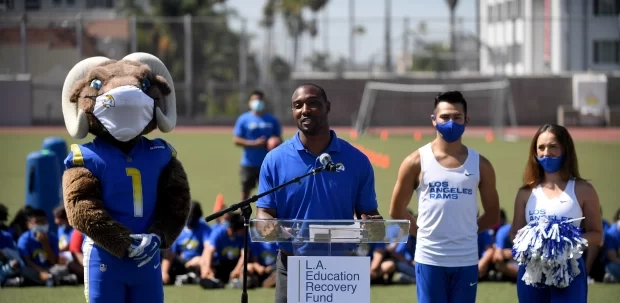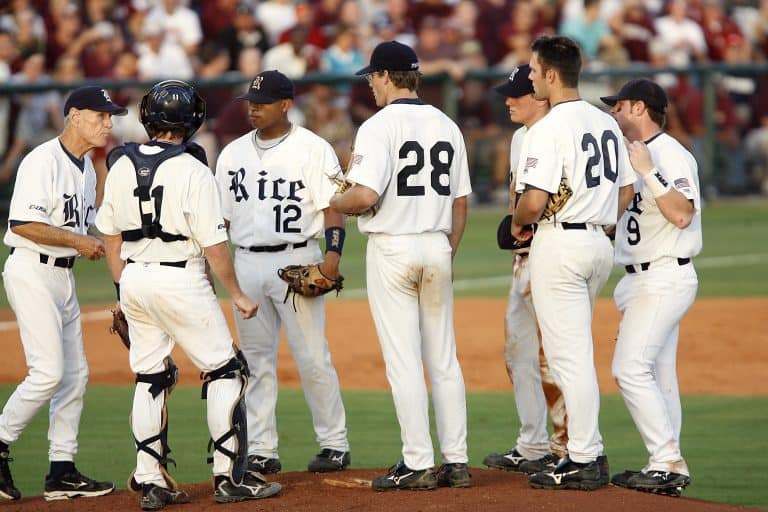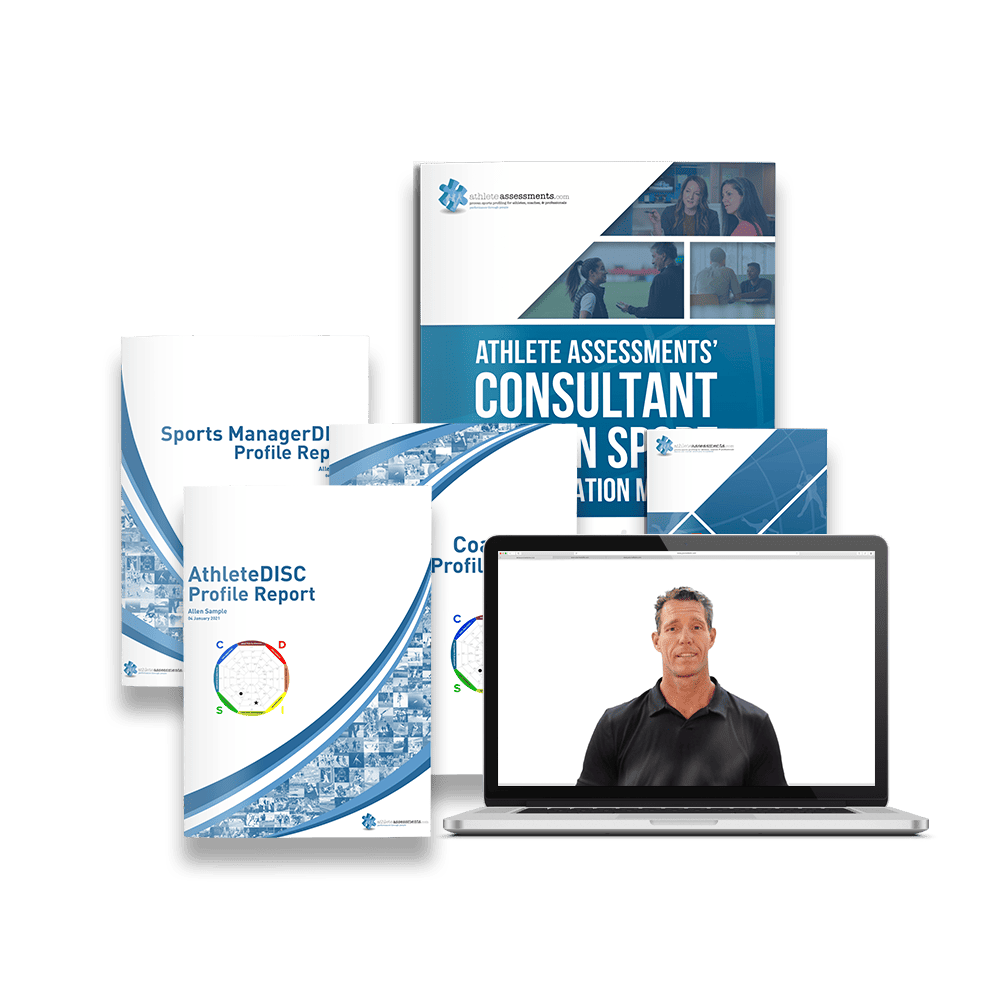It’s well-known that most athletes do not spend their competitive sporting years thinking about what they might do next, so when they do reach that stage, whether by choice or by circumstances beyond their control, they are often left wondering how to transfer their level of on-field success to their off-field career. A common theme has emerged from many athletes who have successfully transitioned, they have not done it alone, and this is where Carrie White and AthLife come in.

Founded in 2004, AthLife services the education, career development, and life skill needs of athletes. Their approach focuses on guiding the client through a process that builds skills and confidence to enable them to assume control over their ongoing career development. Carrie White joined AthLife in 2013 as the first full-timer aside from the founder and president, and as the Chief Operating Officer, she has been working one-on-one and with groups of professional athletes for almost a decade.

To put it simply, Carrie shared their ethos,
“Our work is really to empower athletes. We work with them to meet and exceed their professional development goals, and what that means is helping them prepare for life after sport. We want to help them find success in whatever comes next.”
Currently, AthLife is working with over 600 individual athletes from a full spectrum of sporting backgrounds, while also partnering with peak sporting organizations including the NFL PA, The Trust (powered by the NFL PA), the NBA, and major league soccer, just to name a few. Additionally, AthLife has also worked with students from over 40 Division I institutions in the areas of education and life skill development. The length of their client relationships also varies. At this time AthLife works exclusively in men’s sport, and while some men remain in their service for 10 years, others will utilize the team and their resources for a relatively short period of time, even just a couple of months.
What does come next for athletes who have achieved so much on-field?
Traditionally, transition is a challenging time for athletes as their exploration of career options is viewed as a stop-start sequence of events where many only start to consider their next steps once their competitive life has finished and professional life begins. But instead, Carrie explained that her team encourages athletes to begin preparing for the transition while they’re still actively competing, “We call it a parallel path, it’s not plan B because it’s going to happen. The best and most talented athletes end their athletic career at some point, even if they compete until they’re 40 or 45, it’s going to end and they’re going to do something else.”
Carrie added,
“The average careers for professional athletes are often shorter than they would want them to be. Typically, with the professional athletes that we work with, they don’t choose to retire. They get fired. And so, their career ends before they thought it would either because of injury or just because that’s the nature of professional athletics.”
Part of AthLife’s approach is to provide athletes with access and insights into a broad range of job types and careers that exist outside of their sport to ensure they are making informed decisions about their future. Considering the limited visibility many athletes have to jobs and careers outside of their sport, advisors at AthLife will encourage athletes to talk to people about what they do to gain further understanding of what a real day or week can look like in different job settings and whether it’s something they would be interested in doing. Carrie added, “There is not an athlete that I’ve worked with that can’t do something else, they just don’t know what it is all the time. Generally speaking, athletes didn’t have summer jobs, they didn’t do internships, and they didn’t do traineeships. They were training to be elite athletes.”
While Carrie and her team provide support in identifying potential educational obstacles like unfinished undergraduate and graduate degrees, sometimes the athletes simply need to work through choices like whether they want to work behind a desk or be outside. Carrie noted, “Often it may be easier to cross things off a list at first rather than trying to identify exactly what it is that you want to do.”
The transition out of an athletic career can often see a person presented with many different prospects or offers, so how does someone with limited prior experience, but an abundance of opportunity choose what they want to do?
Part of AthLife’s supporting role is to ensure the athlete doesn’t feel as though their next role is the be all and end all pathway, but that choosing something that aligns with and benefits them is still important. Carrie shared one of the primary development strategies they use in doing this, “I think helping people through the transition is really about doing a lot of self-awareness exploration. Identifying their behavioral patterns and preferences, their values, and what’s important to them.”
Developing self-awareness is foundational in AthLife’s work with clients as this awareness of one’s own preferences and strengths can guide athletes towards professional careers which are more likely to result in achieving personal success. To do this, advisors use Athlete Assessments’ DISC Profiles as a tool to enhance their client’s understanding of their own actions and behaviors, along with building safe and effective communication between them through developing a shared understanding of each other.
DISC measures the degree of Dominance, Influence, Steadiness, and Conscientious behavior as represented in a four-quadrant model. Everyone has their unique level of each style. It’s the combination of each level of D, I, S, and C that describes someone’s individual behavioral profile.
Carrie added, “We use DISC in a couple of ways, I use it with our team and our clients, which helps us both work better with our clients, but also with each other. All of our team members have completed their DISC Profiles and we use it as a part of our ongoing discussions internally in self-evaluations. We’ll talk about things like where has your DISC Profile served you well in the last six months, where would an opportunity be to flex, and we are constantly using it in our team discussions, it’s created a common language that has served our team really well.”
Athlete Assessments’ DISC Profiles deliver a 40-page report outlining the individual’s unique spread of strengths, style of communicating, approaching tasks, and building relationships with the people around them. The reports detail an individual’s preferred and non-preferred behaviors through a four-quadrant model which shows degrees of behavior as opposed to binary absolutes, highlighting the importance of adaptability in any pursuit of performance. Importantly, Athlete Assessments’ DISC Profiles also give an insight into what an individual needs to be successful in a chosen endeavor, and often confirm or enhance their understanding of self, while also uncovering potentially unseen strengths or blindspots in their awareness.
In addition to identifying behaviors and isolating elements which contribute to an individual’s success, DISC also provides a safe language within any relationship or group to talk about behavior. Reflecting on a recent three day workshop, Carrie talked about the way the group of 12 post-professional soccer players included some men who were less interactive (low ‘I’ in DISC), meaning they are generally less likely to volunteer a contribution or spontaneously add to a conversation. She shared that because everyone was aware of each other’s profiles and had the common language of DISC, the lower I’s could say, “Hey, high I, let me talk for a little bit”. This jockeying for contribution time created a great learning opportunity for the high ‘I’ too as the safe, behavior-focused nature of the DISC language enabled him to take the challenge positively.
Carrie added,
“We benefited from hearing from the voices of others that really we may not have if we didn’t have that language as a foundation of the overall dialogue”.
Athlete Assessments’ DISC Profiles can help athletes working with AthLife to identify and name exact behaviors that lead to their on-field success, with the next step being to explore careers that utilize or rely on those skills too. Carrie explained that when working with athletes, she will get them thinking and talking about behaviors that are routinely shown by people with high D, I, S, or C and then challenge them to think of careers where they could use those skills. During conversations they also consider when these behaviors might not be helpful in various contexts.
Liz Masen, CEO of Athlete Assessments says,
“AthLife reinforce our own belief that, importantly, no one profile is better than another, any profile can take on and be successful in any position, and the end goal of DISC is never to improve on your profile. DISC’s primary purpose is to know yourself better, so that you can adapt or flex to suit a particular environment, needs of a role, or others when required. Athlete Assessments is so proud to be involved with AthLife’s work with these athletes as they uncover how they can contribute to their communities post competitive sport.”
To build connections while also providing real-life examples of adaptation, Carrie shares her own profile with clients and talked to us about the way she flexes to suit the needs of her role, how she manages the impact of adapting, and what it means to her in practical terms on a day-to-day basis. The process of adapting is a critical conversation Carrie has with clients when they are analyzing their own profiles and potential career paths. Carrie highlights it as an essential skill, while also acknowledging the energy required for consistent adaptation and how this may need to be a consideration when looking at the suitability of potential opportunities.
Sharing another recent example of the way AthLife uses Athlete Assessments’ DISC profiles to help people take a closer, more informed look at their behaviors and motivations, Carrie told us about an athlete they were working with. Having graduated from a prestigious institution, he was extremely well educated while also being a great athlete, yet despite being successful in securing jobs after he retired, he was fired, twice. Carrie added, “It was puzzling to all of us, it was puzzling to me, it was puzzling to his advisor, it was puzzling to him.”
After doing an Athlete Assessments DISC profile, the young man realized that he was using his strength in developing process to secure the roles, but was unable to maintain them as the basic role demands did not pertain to the strengths he had used to land them. When he looked closely, he realized while he was securing roles in sales, he personally was not a salesman and found the behavioral adaptation unsustainable. AthLife’s advisors worked closely with him on shifting his focus towards careers that were most suited to his preferences and strengths, and Carrie proudly shared he has been in his new role now for 18 months, with a recent promotion.
To conclude our conversation Carrie shared how DISC has affected her own personal career development,
“I’ve talked mostly about how we’ve used the DISC to help our team and help other individuals, but selfishly the DISC has helped me to be a better supervisor, a better teammate, and a better colleague. I am constantly thinking about DISC and behavior, and I’ll say it to my team, to a colleague, to my husband, I need to flex my ‘I’ today, or it’s going to be a ‘C’ day for me because I’m working on our annual report. Having that self-awareness has and continues to help me as a professional. So, it’s not just helping other people, which I really value about the instrument, it’s also helping me as a professional.”
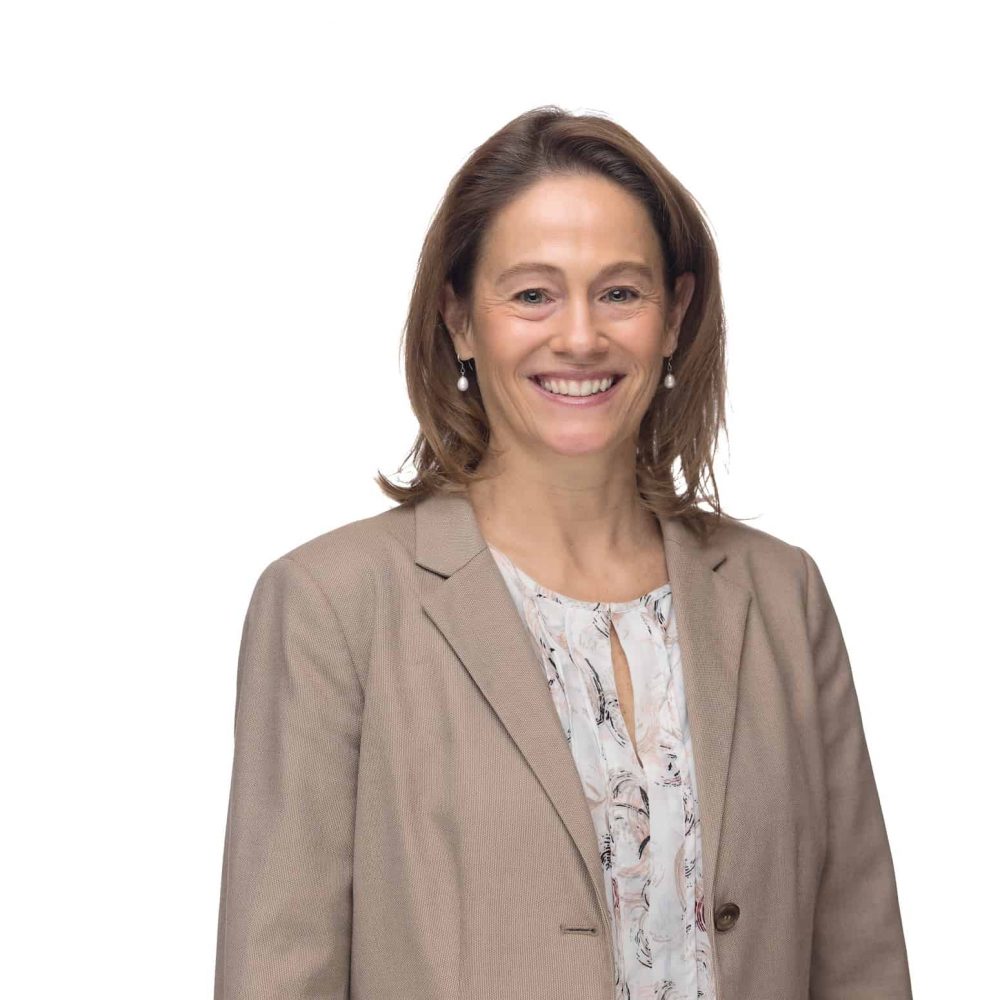
Biography for Carrie White
For almost a decade Carrie was the Chief Operating Officer for AthLife, and also an Assistant Director in Academic and Membership Affairs. Previously, Carrie was at North Carolina State University where she progressed internally to become the Associate Athletics Director for Academics. Carrie has a Master of Business Administration from Elon University and an Undergraduate Degree in Arts, majoring in Psychology from Towson University where she was a Division I gymnast. As a recent update, Carrie announced her move to the United States Olympic & Paralympic Committee as Vice President of Athlete Development & Engagement.
Where to from here?
Whether you work directly with athletes, in administration enhancing the student-athlete experience, or in the classroom, if people rely on you to bring them reliable and tested tools to put them at the top of their current field and set them up for the next, Athlete Assessments’ DISC Profiles are just the start of our services and programs in which we can contribute. We encourage you to look at our online library of free resources which contains many articles detailing the way our DISC Profiles are applied in various practices. If your reading prompts any questions, we would love to help you be your best so just reach out and contact us.
LOVE THIS ARTICLE?
DOWNLOAD YOUR FREE, PRINTABLE PDF COPY BY FILLING OUT THE FORM BELOW!
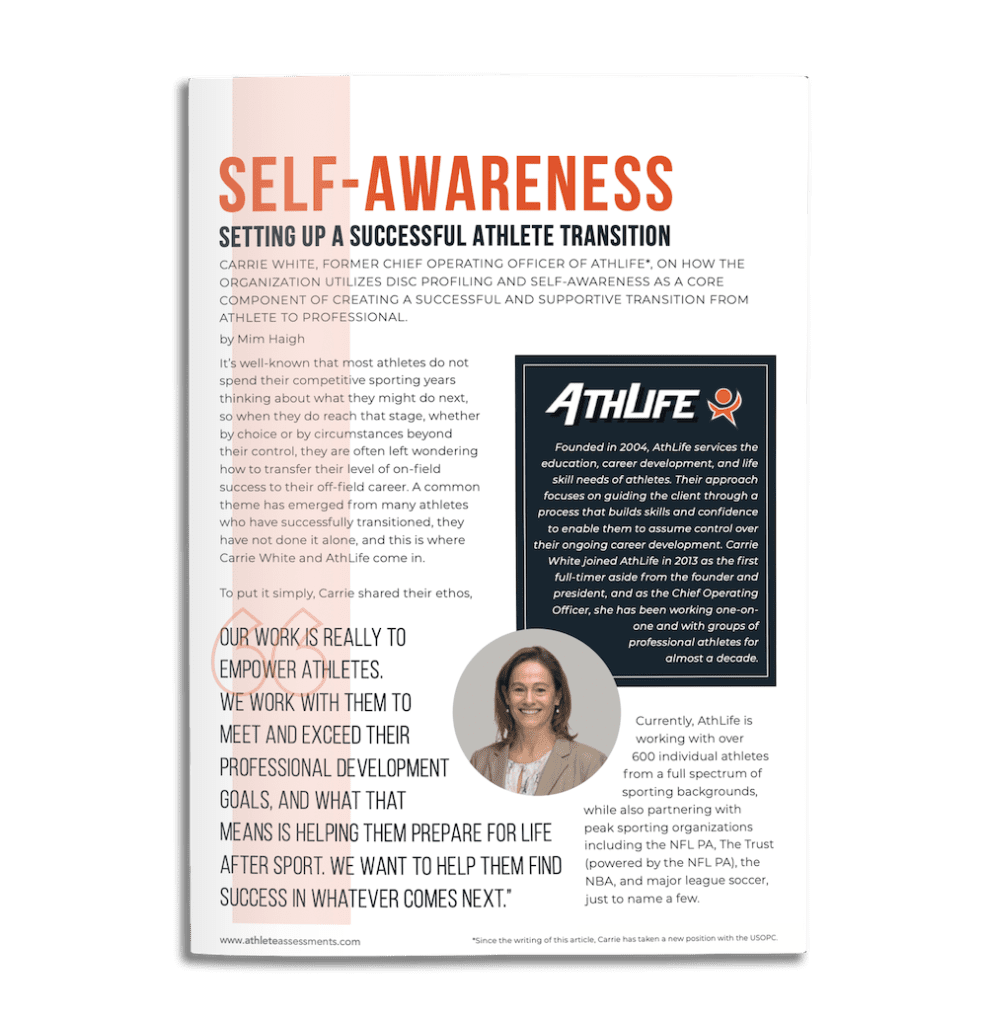
Recommended Articles
Mental Performance Coach, Rick Sessinghaus, on using behavioral profiling as a foundation for effective coaching, producing championship winning athletes, and highlighting the strengths of each DISC Profile in golf.
Johnathan Franklin, Director of Social Justice and Football Development for the Los Angeles Rams, on life-altering instances, laying the foundations for your future, and the importance of community outreach in sport.
‘Communication is the response we get.’ It’s an interesting concept, which becomes even more interesting when we think about this in action. Thinking back to the last time somebody misinterpreted our words or misunderstood what we were saying, the chances are that we don't have to think back too far. The challenge is, how do we ensure we minimize how often this scenario occurs, who takes responsibility for it happening, and importantly, rectify it for the future.
Dr LaTisha Bader, Certified Mental Performance Consultant on using Athlete Assessments’ DISC Profiling to develop self-awareness and team chemistry.



